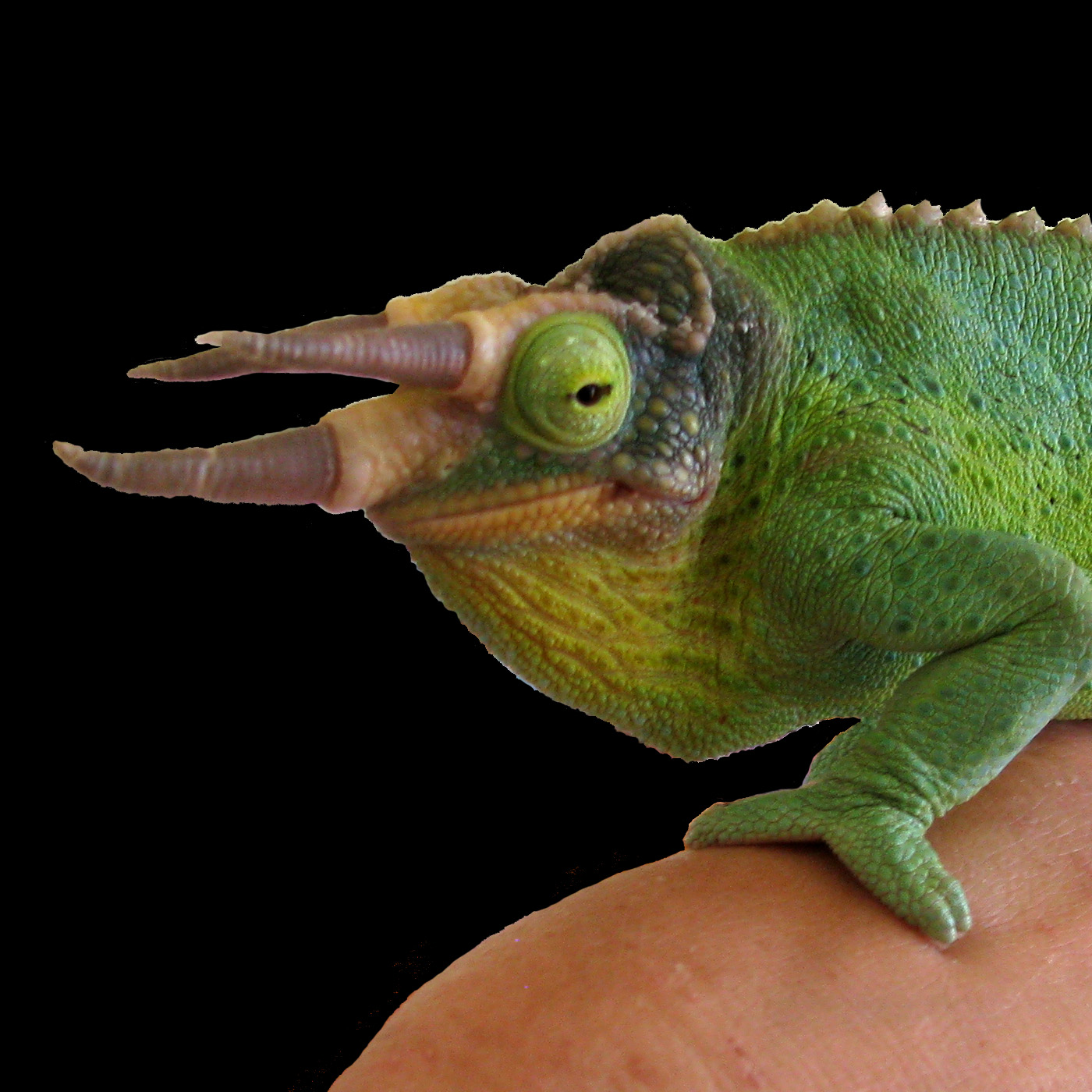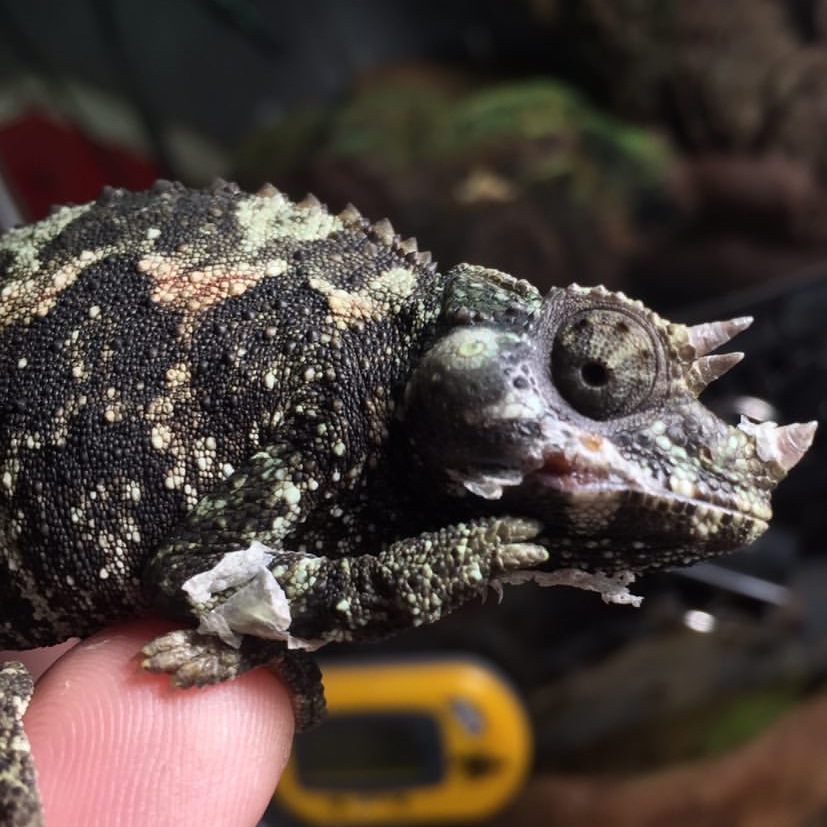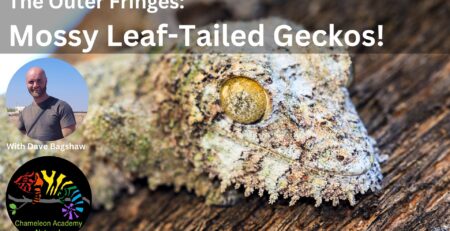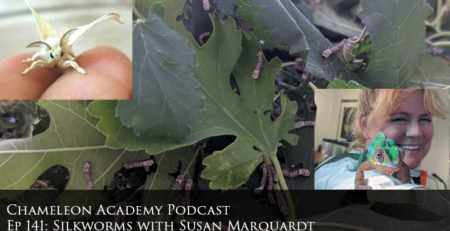Ep 166: Temporal Gland Infections with Dr. Tom Greek
Listen Here!


Bill Strand
Ep 166: Temporal Gland Infections with Dr. Tom Greek
If you are a keeper of the Jackson’s Chameleon, you may be familiar with the temporal gland. It is a gland at the corner of the mouth that seems prone to infection. When husbandry is off. This is a significant health issue with Jackson’s Chameleons and one that is worth being familiar with. If you do not have a Jackson’s Chameleon, fear not, the review on bacterial infections can apply to any of our chameleons, temporal gland or not. To review the Temporal Gland Infection, or TGI in abbreviation, I am bringing on Dr. Tom Greek of Greek and Associates Veterinary Hospital in Yorba Linda, CA which is on the edge of Orange County. He is one of those more-valuable-than-gold vets because of his extensive experience with chameleons. I know this first hand as he has seen my chameleons from the Brookesia Madagascar stump-tailed chameleons to the giant Parson’s Chameleon for over two decades. Let’s bring him on and talk about Temporal Gland Infections.
Chameleon keepers are well aware that we need to provide the correct environmental conditions or else our chameleon’s immune system will be compromised, possibly leading to a bacterial infection. This is common to all of the species. Jackson’s Chameleon keepers have an extra area that is prone to these infections, but it shouldn’t be something that keeps you from considering a Jackson’s Chameleon. With all chameleons, proper husbandry will be what keeps them in health with or without a temporal gland. In fact, with the three Jackson’s chameleons I have had an issue with in the last year, they have all been in the lacrimal nasal duct, not the temporal gland. They are all treated the same way. And I know exactly what caused them – temperature spikes due to the recent heat waves. This of course has got me thinking that the days of easy outdoor keeping of Jackson’s Chameleons for me in Southern California may be waning. I used to have two cages for each chameleon – an indoor cage and an outdoor cage and it is time for me to return to that very good policy.
As for what you should do. If you have a Jackson’s Chameleon – or any chameleon – look for slight swelling along the lip line. If you catch it early, which let’s hope you do, it will be so slight that you wonder if it is your imagination. This is the perfect tie to go with your gut feeling that something is off. Check the other side and see if there is any difference. See if you can get him to open his mouth so you can see if there is any swelling on the inside. Here is the big problem with chameleon veterinary medicine. The condition is most treatable when you can’t be sure if it is really a problem or not. But if you wait until there is no doubt then your chances of beating it are reduced. So, this is where being laser focused on any subtle changes in your chameleon’s appearance or demeanor pays off. And I always say, I hate wasting money going into the vet, but the best news I can get is that there is nothing wrong. Now there is one caveat. And this is where it is tricky. You have to have a realistic sense of how good you are in determining something is off with your chameleon. A physical swelling is easy. The vet may be even better to diagnose it than you are. And, this covers the TGIs that this episode is about. But if we are talking about infections on a higher level then we are including in our discussion other infection areas. And if you see your chameleon being lethargic, sitting with his eyes closed, or nose pointed in the air he is giving behavioral signs of an infection taking hold. The infection may at such a level that your chameleon will be able to totally mask it at the Vet office. When your chameleon is hyped up on adrenaline he isn’t thinking about acting sick. So he could very well be acting totally healthy when your vet gives him an exam. At this time it may be a blood test that is needed to definitively prove thee is an infection going on. Experienced reptile vets will know how well reptiles hide their sickness and will consider your behavior report an important part of their diagnosis. And the broad spectrum antibiotics have a high level of safety. You definitely do not want to give medications unless they are needed, but the vet, may decide that the minor consequences of giving the antibiotic Baytril on a behavior-based suspicion are usually a better risk than waiting for more definitive physical sign. Once again, in the chameleon world, a reptile experienced, or better yet, a chameleon experienced veterinarian is gold. It is 100% worth it even if you have to drive a distance to get to them.
If you are in the Orange County area of Southern California, you have access the Dr. Greek. He is in the city of Yorba Linda.
But even vets that say they see exotics are not always chameleon experienced. So I will be starting a veterinarian list on the Chameleon Academy website of offices that my listeners have verified are good chameleon experienced veterinarians. Not just exotics and not just reptiles, but chameleons. And I am looking for personal experience. I’d like for this to be a global resource so please share your vet names no matter which country you are in! If you are a vet listening and you are experienced with chameleons please get in contact with me so I can list your office as well. We are constantly helping people around the world find a vet. Bottom line – if you see chameleons please let me know. And I am confident that if you are listening to this podcast you have already shown an above average dedication to chameleons. Whether you are a vet that works with chameleons or a keeper that has a chameleon vet you are happy with, please email names and/ or links to bill@chameleonacademy.com and I will create this resource for our community.
Thank you Dr. Greek for joining me here today and sharing your experience with the community. And, I personally thank you for the decades of being part of the community. And to you listeners, I thank you for joining me and Dr. Greek for our talk on TGIs. So go out into the world and keep a close watch on the jawlines of those three horned mini-tree dragons….Wow, you know you are part of a ultra-specialized community when that constitutes as a good sign off.

















